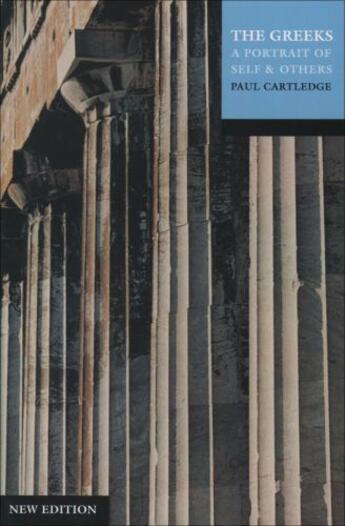Résumé:
Who were the Classical Greeks? This is not an original question, but in this book it is given an original and challenging answer. Paul Cartledge examines the Greeks in terms of their self-image, mainly as it was presented by the supposedly objective historians: Herodotus, Thucydides, and... Voir plus
Who were the Classical Greeks? This is not an original question, but in this book it is given an original and challenging answer. Paul Cartledge examines the Greeks in terms of their self-image, mainly as it was presented by the supposedly objective historians: Herodotus, Thucydides, and Xenophon.
The Greeks were the inventors of history as we understand it, just as they are our cultural ancestors in so many other ways. Yet their historiography remained rooted in myth, and the mental and material context of many of their inventions for which we rightly treasure the Greek achievement - especially democracy, philosophy, and theatre, as well as history - was often deeply alien to our own ways of thinking and acting.
The aim of The Greeks is to probe fully that achievement, principally using a typical Greek mode of conceptualization: polarity or binary opposition. The book explores in depth how the dominant - adult, male, citizen - Greeks sought, with limited success, to define themselves unambiguously in polar opposition to a whole series of `Others' - non-Greeks, women, non-citizens, slaves, and gods. - ;Who were the Classical Greeks? This is not an original question, but in this book it is given an original and challenging answer. Paul Cartledge examines the Greeks in terms of their self-image, mainly as it was presented by the supposedly objective historians: Herodotus, Thucydides, and Xenophon.
The Greeks were the inventors of history as we understand it, just as they are our cultural ancestors in so many other ways. Yet their historiography remained rooted in myth, and the mental and material context of many of their inventions for which we rightly treasure the Greek achievement - especially democracy, philosophy, and theatre, as well as history - was often deeply alien to our own ways of thinking and acting.
The aim of The Greeks is to probe fully that achievement, principally using a typical Greek mode of conceptualization: polarity or binary opposition. The book explores in depth how the dominant - adult, male, citizen - Greeks sought, with limited success, to define themselves unambiguously in polar opposition to a whole series of `Others' - non-Greeks, women, non-citizens, slaves, and gods. -









